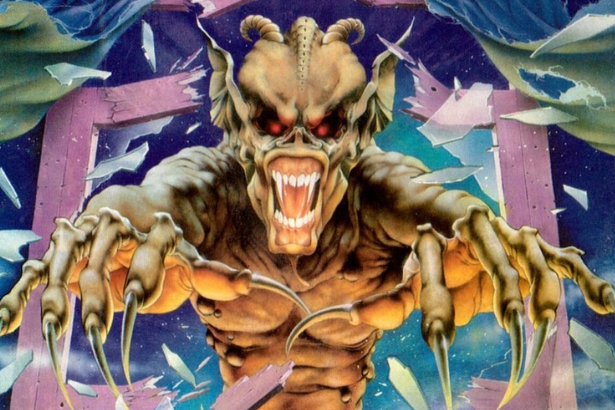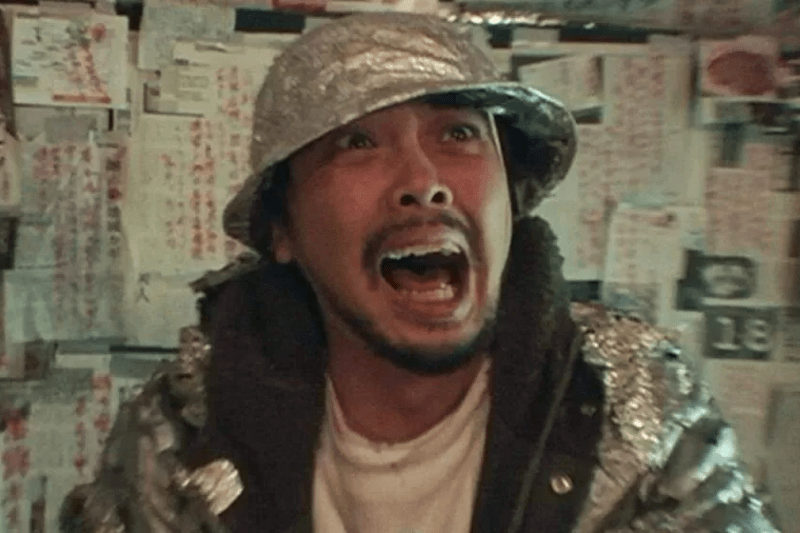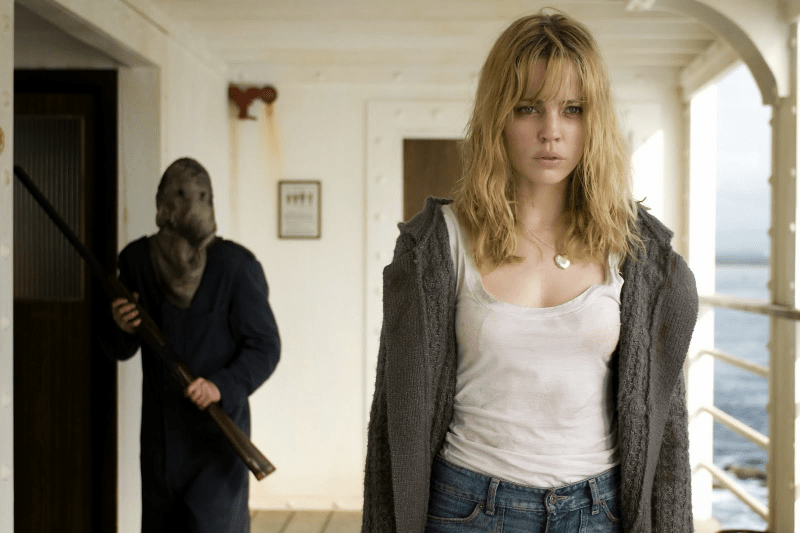Maybe you’re renting apartments well into your 30s. Perhaps awful news screams at you every time you check your phone. Or, like many of us, you’ve barely scratched the surface of the hang-ups and heebie-jeebies your own parents have passed down to you. In any or all of these cases, having kids can be too terrifying to think about. Two Irish horror films of recent years plunge into classic Celtic myth and unearth new ideas about this fear of child-raising failure. In The Hole in the Ground and You Are Not My Mother, different perspectives are explored around parental anxieties.
A “changeling” is a human-like creature that pops up in folklore throughout Europe. They’re fairy folk who interlope in the middle of the night, swapping human children for one of their own. It isn’t hard to see these doppelgänger stories popping up in response to mental illness or neurodivergence, but they have a universal quality to them as well. To lose your identity or see that change in somebody close to you may be a very personal fear. The sense of self is the last sense of security. Pick that lock and all hell breaks loose.
More than a few millennial horrors look at this, from the reality-check rug-pulls of Us to the cold dissociation of Brandon Cronenberg’s Possessor. We have ample reason to be anxious about everything, all of the time and those anxieties can push inward very quickly. The protagonist of director Lee Cronin’s The Hole in the Ground, Sarah O’Neill (Seána Kerslake) tries to explain the feeling to her son Chris (James Quinn Markey). “Sometimes when you’re a grown up, life gets all blocked up with worry.”
Sarah has taken her son out of Dublin and into the Irish countryside. Chris is confused by his father’s absence, but the scar on Sarah’s forehead and the way her body seizes when he’s even alluded to leave the audience in no doubt. Sarah gave up her studies when she became pregnant, and though she clearly loves her son, it’s hard for her on her own. He throws tantrums, he asks awkward questions, he whines, and his attention span isn’t even long enough for him to finish his dinner. So much of parenting seems to be coaxing, sometimes dragging reasonable behaviors out of these tiny people that have no frame of reference on how to behave.
The thing is, Sarah is actually doing a great job. It’s just a hard one. “They swing from monsters to angels and back again in the blink of an eye,” another mom tells her. It’s easy to understand Sarah doubting herself when her son suddenly just seems…different.
There’s a massive sinkhole in the woods by their new house, a natural phenomenon with a distinctly unnatural feel. It’s endless and silent and ominous — a festering wound in the land itself — yet no one seems to acknowledge it. After they find the hole, Sarah can’t help but notice changes in her boy. He’s unnaturally polite, his appetite has massively improved, and he’s making friends at school just like his mother asked him to. Chris seems almost too perfect, but Sarah knows something just isn’t right. That’s before he starts eating bugs, scurrying around his room on all-fours, or throwing her across the room.
The easy thing to do would be to accept that everything is fine with her son. After all, that’s what Sarah has been doing with herself. Seána Kerslake layers the horror heroine's performance with a just-about-covered sense of exhaustion. Polite conversation with new friends never quite makes it to her eyes; she sags ever-so-slightly every time she knows that Chris isn’t looking. If she fails Chris, it feels like she has nothing left — but if she doesn’t acknowledge the problems facing them then they’ll truly be lost to each other. This anxiety becomes literal when she descends into the hole to retrieve her real son from the monsters buried beneath the surface.
Cronin keeps his camera controlled for most of the film. An early drone shot of the mother and son driving into the woods tilts 180 degrees, showing their descent, but the film is very patiently and subtly paced after that. The scares always come from Sarah’s point of view or from her imagination, making it all the easier to conflate the two. But when she passes beyond those doubts, the final act brings a claustrophobic framing, obscured by darkness and frenetic movement, only widening when Sarah and Chris are reunited. Sarah is flung into a world she doesn’t understand, and one wrong move could destroy the son that helped her “finally understand what life is all about”. It’s anxious and uneasy, but she makes it.
You Are Not My Mother looks at familial trauma of a different kind, in the troubled home life of Dublin schoolgirl Char (Hazel Doupe). She’s a smart but quiet girl, who has to do a lot of looking after herself between her granny’s advancing years and her mom (Carolyn Bracken) Angela’s ‘down days.’ The Angela we see is struggling badly, stuck in bed, unfocused, barely able to speak to her own daughter. After an argument one morning, Angela tells Char that she “can’t do this anymore” and vanishes.
Then suddenly it seems like she’s back, but Angela is more erratic than ever, and Char feels increasingly confused, alienated and unsafe in her presence. She feels powerless as strife sets into the home, her granny and uncle all the more controlling of her beloved mom, who’s just about there except when she’s all the way not. This horror is less about monsters and mayhem than it is the constricting air between spaces in which Char doesn’t seem to belong.
Director Kate Dolan takes a measured approach. She presents a tense kitchen-sink drama that steadily amps up with backstory and body horror. “Angela” behaves increasingly untethered in her human body, less able to keep up appearances. A scene of Angela dancing manically is understated but upsetting — Char at a loss and unprotected, engulfed in that dangerous anything-can-happen energy as the fear of being out of control consumes her mom.
Bracken and Doupe’s performances are heartbreakingly humanizing. Bracken’s utter defeat before Angela’s disappearance, the distance in her depression, are complemented by Doupe’s teenage terseness and helpless frustration. The changelings stand for fears about being there for your loved ones. Both films highlight the awful feeling that if you are working with a mental illness, you’re already working overtime to protect yourself, and adding a child to look after on top of that can be overwhelming.
Char already frets about her family’s traumas continuing based on lineage. “Angela” preys on this, trying to get her “daughter” to embrace the call of going away from yourself. “You’re done. No friends. No family. You’ve nobody left in this world. Except me.” She invites Char to join her in a world with no pain or sadness, and it’s a very different kind of attack to the physical assaults at the climax of most horror finales. For the family to survive, for the real Angela to come back, they need to be more mindful about how to protect themselves.
These underseen horrors from up-and-coming directors are both grounded, with a personal scale and a profound sense of what’s scary. They build to something achingly grand, magnifying the human frailties underneath the monsters. The fears they dig up — of changing something you can’t undo, of being unable to keep what’s closest to you safe — are as relevant for the modern viewer as they were in stories about fairy folk hundreds of years ago.







